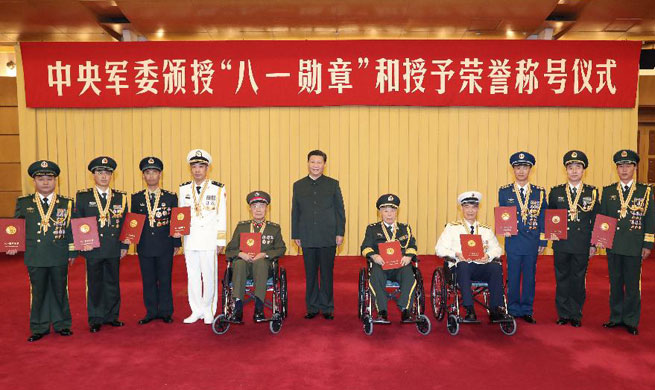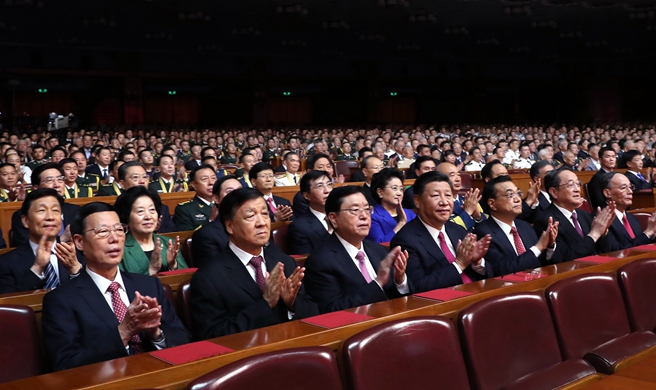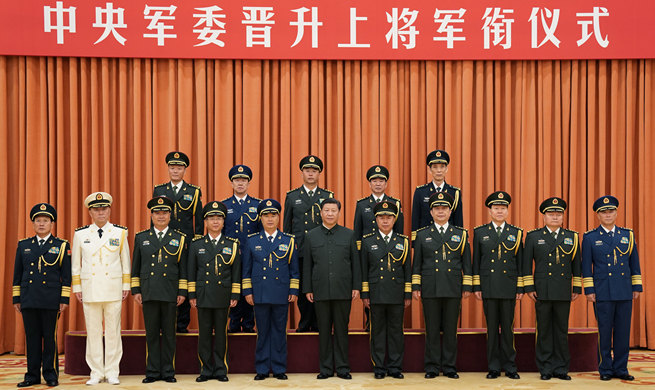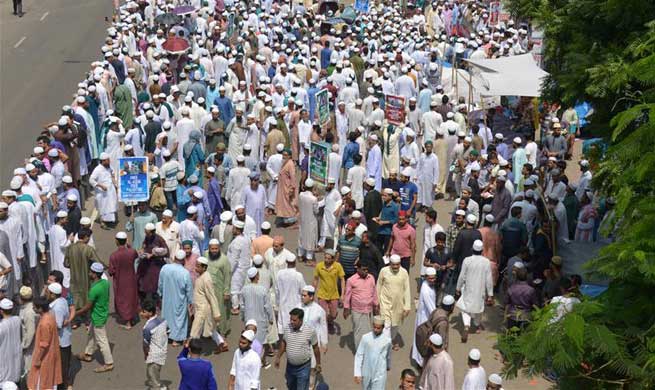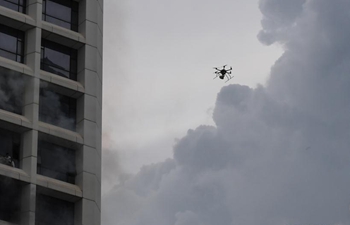SEOUL, July 29 (Xinhua) -- South Korea's military said Saturday that the Democratic People's Republic of Korea (DPRK) has fired a ballistic missile, which was believed to have been an intercontinental-range ballistic missile, into its east waters.
The Joint Chiefs of Staff (JCS) said in a statement that the unidentified missile was fired at 11:41 p.m. (1441 GMT) Friday from the area in Jagang province, the central northernmost part of the DPRK.
It was immediately reported to President Moon Jae-in who chaired the national security council (NSC) meeting of the presidential Blue House at about 1 a.m. Saturday.
Defense Minister Song Young-moo said in a statement that the ICBM test is a "grave provocation" that jeopardizes the stability of the Korean Peninsula and world peace.
He said that as a stern response, the U.S. military will send "strategic assets" to South Korea, alluding to stealth bombers and aircraft carriers.
"South Korea and the U.S. ... will have strategic assets deployed (on the peninsula)," Song said.
The DPRK missile flew about 1,000 km and was lofted as high as around 3,700 km, according to the JCS. It was estimated to have been an advanced Hwasong-14, which was test-launched by the DPRK on July 4.
The July 4 launch lofted the missile as high as 2,802 km and made it fly 933 km.
The DPRK's state-run KCNA news agency reported that the country conducted a successful "second" test-launch of the Hwasong-14, which it described as an intercontinental ballistic missile (ICBM).
It was lofted as high as 3,724.9 km and traveled 998 km for 47 minutes and 12 seconds before landing in targeted international waters, according to the KCNA report.
Local and global media speculations said the DPRK had been highly likely to test-launch another ballistic missile of intercontinental range around July 27 to mark the 64th anniversary of the armistice agreement ending the 1950-53 Korean War.
The Korean Peninsula is technically in a state of war as the three-year fratricidal war ended in ceasefire, not a peace treaty.
Right after the DPRK's missile launch, President Moon convened the NSC meeting, in which senior cabinet members and presidential secretaries participated.
During the meeting, Moon said this missile launch of the DPRK can make a fundamental change in security situations in Northeast Asia, senior presidential press secretary Yoon Young-chan said.
Moon instructed security and diplomatic officials to cooperate with neighboring countries to take stern measures of the UN Security Council against the DPRK provocation.
The president ordered the consideration of South Korea's unilateral sanctions, if necessary, toward the DPRK, saying measures to secure the independent defense capability to effectively deter the DPRK's nuclear missile threat should be considered.
He added that measures should be drawn up to freeze and finally dismantle the DPRK's nuclear program.
South Korea proposed to hold talks on military affairs with the DPRK, but Pyongyang has been mum about the dialogue overture.
The dialogue offer was aimed to stop all hostile acts near the military demarcation line (MDL) dividing South Korea and the DPRK.
Seoul also suggested to hold Red Cross talks with the DPRK for the reunion of families of the two sides, who have been separated since the outbreak of the Korean War.










